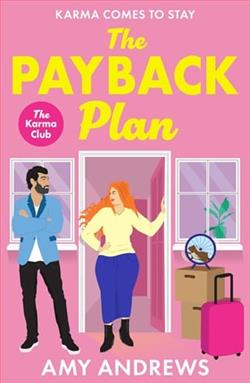Page 56 of Off The Ice
For a long time, I was used to living in a constant state of fight-or-flight mode. Of never feeling truly safe.
When I went back to the house I grew up in, that adrenaline filled my body all over again. Not knowing what I was walking into was an unsettling thing.
I didn’t know if I was going to get screamed at, kicked out, or welcomed with open arms. And sometimes, it was a combination of all three in rapid succession.
Today, walking through the front door, there was an added sense of anxiety because if I didn’t find somewhere to live soon, I might end up right back there all over again.
“Mom?” I call into the darkness of the house.
The blinds were drawn, the house was trashed, and her figure was sprawled on the couch, sleeping under a pile of blankets while the TV played faintly in the background.
But she was alive.
When I didn’t hear from her for a few days, the fear that she might not be alive always sank in. But for now, at least, she was.
I moved through the house, picking up bottle after empty bottle of vodka and putting them all into the overflowing trash. I tied it up, took it outside, and then came back inside to clear up the rest.
This was how we lived for so long. Pizza boxes throughout the kitchen. The stench of alcohol was everywhere. Mess after mess that I couldn’t work fast enough to stay on top of.
Her clothes were in a heap on the bathroom floor, so I gathered them all up and started a load of laundry. I washed the dishes in the sink and left them to dry. I scrubbed the countertops and threw out all the old take-out boxes in the fridge that I knew she’d leave to rot.
I was hit with guilt for not being here to take care of her anymore. For letting it get this bad. But what was worse than the guilt, and deeper, was the relief I felt at not having to live like this anymore. Not having to walk intothisevery day of my life.
Her snores filled the house, and I was grateful. I wouldn’t have to talk to her, carefully navigating a drunken conversation where something might trigger her at any moment, causing the eruptions of anger I’d grown so used to.
Instead, I did what I could, cleaning as quietly as I was able before stocking the fridge with the groceries I’d picked up on the way over here.
Cans of soup, frozen dinners, cereal, and milk. All foods that were easy for her to make on her own with little effort.
What scared me most was when she was too drunk to eat. Her stomach too full of alcohol to realize that her body was craving nutrients and fuel. If I weren’t here to remind her, I knew it had probably been days since she’d had a decent meal, and it hurt to think about it.
When I was home, I could keep track of these things. Now, from far away, all I could do was worry. It was like a chokehold on me at all times, never knowing how far gone she was. If she were one drink away from a hospital visit she wouldn’t recover from.
I’d tried a few Al-Anon meetings that were supposedly there to help the families of alcoholics.
It’s a family disease,they said.Because it doesn’t just affect the alcoholic. But everyone around them too.
That was true, but a big portion of Al-Anon’s healing methods were a complete detachment from the alcoholic. Not walking away from them exactly, but freeing yourself from the thought that you could control their actions.
I hadn’t yet reached that point yet. I’d spent my whole life monitoring my mother’s drinking. Trying to hide her alcohol, pour it out, or intervene in whatever chaotic method I thought fit. And even though it never worked, it never stopped the guilt that overpowered me each time she landed in the hospital.
If only I had done better at keeping her away from it. If only the cost of raising me had been less, then she wouldn’t be so stressed.
It was one thing to say you understood that your parents’ actions were not your own, but accepting that whatever fate she landed at was of her own making and there was nothing I could do about it? That was a level of detachment I would never reach.
I had to intervene. I had to fix her.
Or else I’d have to live in a world without my mother in it. And that was something I couldn’t accept.
“Is he okay?” The words on the other end of the phone stopped me in my tracks later that night on my way out of the library.
“Who?” I asked though I knew there could be only one ‘he’ that Maggie was calling about.
Still, I didn’t understand why our mutual ‘he’ would be anything but okay in the first place. Or why Maggie thought I was the person to call if he wasn’t.
“Liam,” she breathed his name, causing anxiety to spiral in my gut. “We sort of got into a fight earlier, and now I’m feeling bad about it. I just wanted to make sure that he didn’t, like, take off and leave the continent or something.”
“I don’t know,” I admitted, clutching the papers still warm from the printer in my hand. “I haven’t seen him since last night.”















